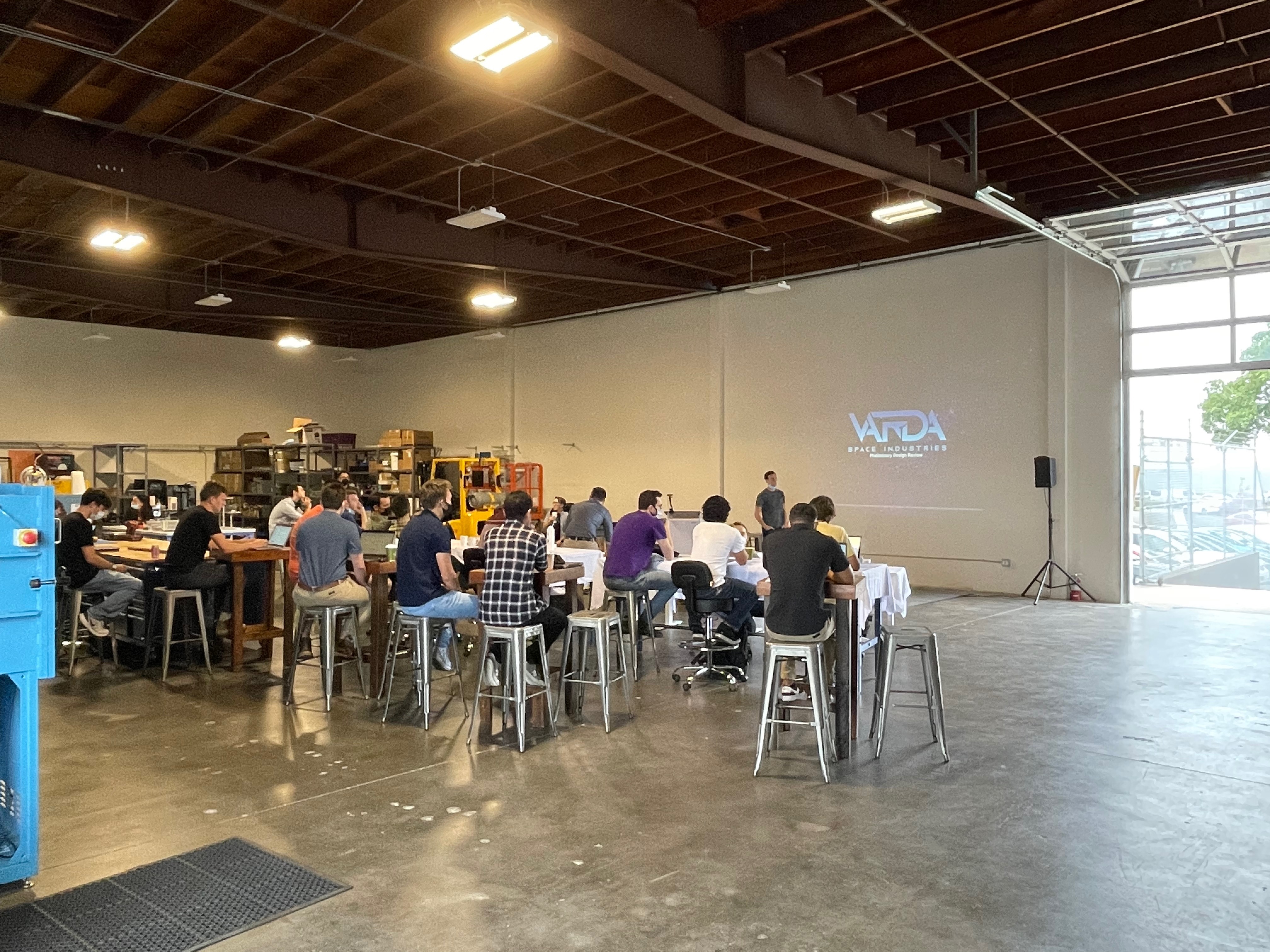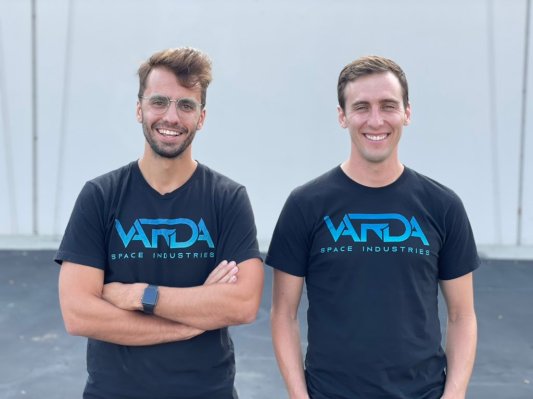Varda Space Industries has raised a $42 million Series A to bring to manufacturing a key capability that can only be found off-world: microgravity.
The eight-month-old startup is looking to establish its first manufacturing facility in space as early as 2023, and by doing so, bring back to Earth advanced products that can only be made under sustained periods of zero gravity.
The round was led by Khosla Ventures and Caffeinated Capital, with participation from existing investors Lux Capital, General Catalyst and Founders Fund. It pushes the company’s total raise thus far to over $50 million, including a $9 million seed round last December.
Varda’s idea is different than that of Jeff Bezos, who said after his own trip to space earlier this month that he wants to “move all heavy industry and all polluting industry off Earth.” The company’s co-founders, SpaceX veteran Will Bruey and Founders Fund principal Delian Asparouhov, aren’t imagining cement mixers and steel plants in orbit. Instead, they want to open up manufacturing processes that aren’t possible on Earth, in order to make bioprinted organs, fiber-optic cables or pharmaceuticals — products that require fundamentally different conditions than what’s available on-planet.
Building the space factory of the future
The value of microgravity manufacturing, Bruey and Asparouhov say, can be found with the International Space Station, essentially a scientific outpost. A steady stream of research has emerged from the ISS over the last few decades showing that novel materials and products are possible in space. But until now, getting, staying in and returning from orbit has been too costly to consider scaling these findings.
“In a way, a lot of our R&D has already been done for us in the public sector, and we’re essentially a ramp toward commercialization for that research that’s already been proven out,” Bruey told TechCrunch.
Right now, the company is building a three-module spacecraft comprised of an off-the-shelf satellite platform, a center platform where the microgravity manufacturing will take place, and a reentry vehicle to bring the materials back to Earth. For the first 10 or so launches, Bruey said Varda would build the products itself. Once the company has established that its process is reliable and cheap, he added that in the long term the goal is to become a contract manufacturing platform for other companies wanting to build products in space.
Asparouhov likened it to the iPhone and the App Store: “The iPhone didn’t come out with the App Store. Apple developed the first 10 or 11 apps to share the value of that. So we’re developing those first few apps ourselves to show the value in this commercial capability that we’re bringing to market, but over time, we will start to release an app store.”
One key part of Varda’s plan is to make all of the manufacturing automated. By keeping humans out of the picture (at least for now), the company is able to reduce critical overhead by skipping human-rated spacecraft development (and the associated safety concerns with crewed launches).

Varda invited regulators and the DoD to a preliminary design review. Image Credits: Varda Space Industries (opens in a new window)
“I think that what investors, NASA and the [Department of Defense], really see as exciting about our approach is that in comparison to everyone else that’s ever discussed ‘space manufacturing,’ we’re by far the most near-term, pragmatic, commercially viable approach, launching and producing materials less than 18 months from now, as opposed to plans that are typically five years, 10 years, decades away from being viable,” Asparouhov said.
He added that one way to think about space manufacturing is that there is a certain dollar per unit-mass that Varda will need to spend to get things up to microgravity, and a dollar per unit-mass of value from manufacturing in microgravity. The key to profitability is finding the products that maximizes the difference between these two equations. Novel pharmaceuticals, for example, could yield massive profits if the innovation gains from zero gravity are correspondingly high.
The company is imagining “multiple missions” in 2023, Bruey said, and then moving to once per quarter and even imagining multiple reentry capsules returning with products per day. The Varda co-founders are convinced that the scale of demand for novel space-made products is potentially high enough to meet this kind of launch and reentry schedule.
Compared to a burgeoning industry like space tourism, Bruey said the space manufacturing has the potential to positively affect a much higher portion of humanity.
“It will touch many different parts of humanity’s experience out here on Earth, with significant improvements in quality of life,” he said.
